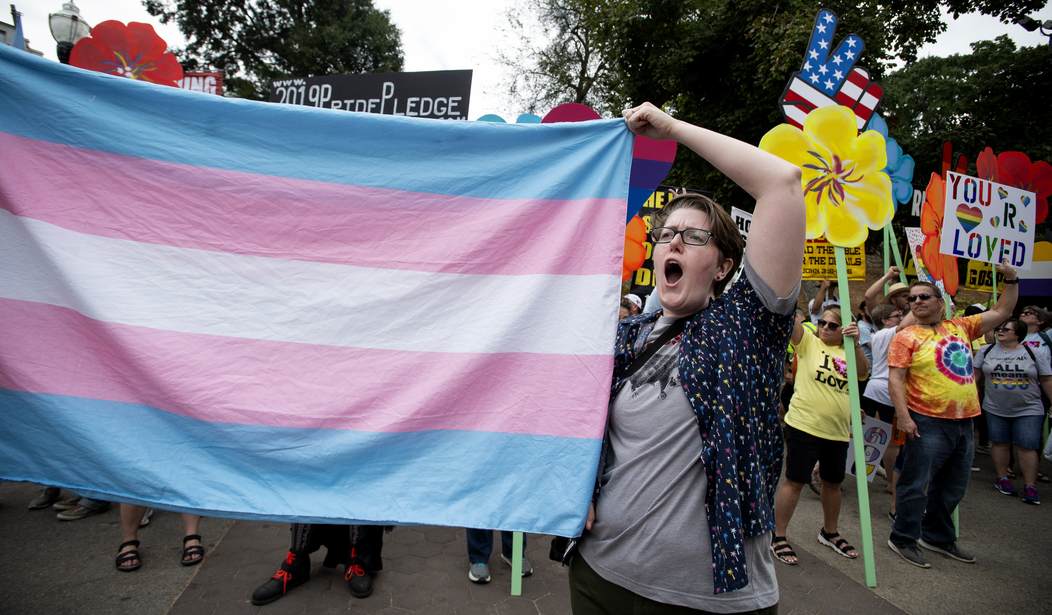Despite the harmful consequences of early sex reassignment treatments, a transgender health association is now lowering its recommended ages for children to begin permanently altering their bodies.
The World Professional Association for Transgender Health previously had guidelines recommending transgender children begin hormone treatments at age 16 at the earliest. Now they’re lowering it to age 14.
Many of the effects of hormone replacement treatments are entirely permanent. A UCSF study says:
The degree to which they can be reversed depends on how long you have been taking them. Some breast growth, and possibly reduced or absent fertility are not reversible.
The WPATH’s new guidelines also say children can start taking puberty blockers as early as age eight. The British Medical Journal conducted a study on the effects of puberty blockers and how they have net negative consequences on young people (via BMJ):
Puberty blockers used to treat children aged 12 to 15 who have severe and persistent gender dysphoria had no significant effect on their psychological function, thoughts of self-harm, or body image, a study has found.
However, as expected, the children experienced reduced growth in height and bone strength by the time they finished their treatment at age 16.
Drugs used as puberty blockers are also known to sterilize people who use them. The Cleveland Clinic lists four drugs that are commonly used as puberty blockers: Goserelin, Histrelin, Leuprolide, and Triptorelin. The same four drugs are listed among those used to chemically castrate men.
Recommended
Chemical castration with the above listed drugs is commonly used on male sex offenders, typically those who committed sexual crimes against minors. Yet advocates for children transitioning would have minors, who cannot possibly understand the long term consequences of chemical castration, take these same drugs.
The effects of puberty blockers are reversible if use of the drug is stopped early enough, but if use persists for extended lengths of time, the effects can become permanent. It is typically recommended that children use puberty blockers for a few years before discontinuing use or switching to hormone replacement therapy, meaning the risk of permanent negative effects increases with time. Puberty blockers can also complicate what the Cleveland Clinic calls “gender affirming” surgeries, especially for biological males.
Perhaps most shockingly, the WPATH has also lowered their recommended ages one or more years for sex reassignment surgeries, now saying life-altering, irreversible surgeries such as breast removals can be performed on children as young as 15.
The WPATH recommends these treatments despite their risks (via AP):
The group acknowledged potential risks but said it is unethical and harmful to withhold early treatment … The update is based on expert opinion and a review of scientific evidence on the benefits and harms of transgender medical treatment in teens whose gender identity doesn’t match the sex they were assigned at birth, the group said. Such evidence is limited but has grown in the last decade, the group said, with studies suggesting the treatments can improve psychological well-being and reduce suicidal behavior.
Evidence for the efficacy of sex reassignment in reducing harmful mental health conditions is also sparse according to a Heritage Foundation study.
The AP received this exclusive information directly from the association. At no point does its report mention gender dysphoria as a necessary precedent for transgender children seeking puberty blockers, hormone replacement, or surgery. As Townhall reported, the number of trans identifying youth has risen to 1.4% of teenagers. Comparatively, only 0.6% to 0.7% of the entire population of the country, adults included, have diagnosed gender dysphoria. This means a vast majority of the teenagers identifying as transgender likely have no medical basis for making permanent changes to their bodies.
A former psychologist on the board for the WPATH left the organization because she said she had “concerns about ‘sloppy’ treatment given to kids without adequate counseling” (via AP):
She is still a group member and supports the updated guidelines, which emphasize comprehensive assessments before treatment. But she says dozens of families have told her that doesn’t always happen.
“They tell me horror stories. They tell me, ‘Our child had 20 minutes with the doctor’” before being offered hormones, she said.
Many medical professionals doubt the efficacy of pediatric transgender treatments (via AP):
Dr. Julia Mason, an Oregon pediatrician who has raised concerns about the increasing numbers of youngsters who are getting transgender treatment, said too many in the field are jumping the gun. She argues there isn’t strong evidence in favor of transgender medical treatment for kids.
“In medicine ... the treatment has to be proven safe and effective before we can start recommending it,” Mason said.

























Join the conversation as a VIP Member